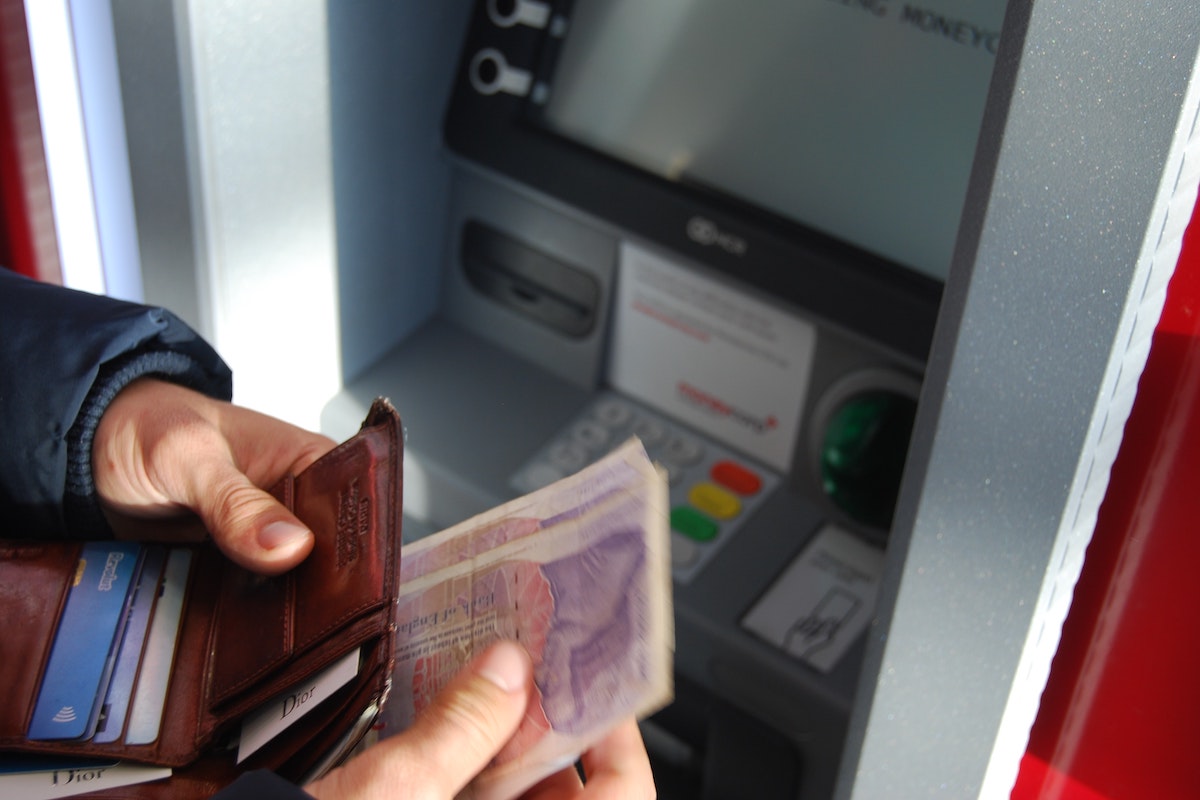By: Sarah Stone
Travel scams are an unfortunate situation that’s easy to encounter while on the road, and they can happen to anyone. These can range from broken taxi meters meant to overcharge you for a trip, to fake cops scaring you for bribes or fines.
No matter where you’re going, it’s essential to be aware of your surroundings and what can make you stand out to a scammer so that you can have a safe and enjoyable trip.
Let’s look at some of those scams you may encounter while traveling, and how you can make sure to avoid them!
15 Most Common Travel Scams Around the World

Photo by Nick Pampoukidis on Unsplash
1. Broken Taxi Meter Scam
One of the most common scams you’ll find all over the world—some taxi drivers may claim that their meter is broken and charge an inflated rate for the ride. To avoid this scam, agree on a price before getting in the taxi, or use a ride-sharing app like Uber or Lyft if available. Use a known, marked taxi service when possible—these tend to be clearly marked at airports. As well, make sure to keep your belongings close to you and not in the trunk, as some of the more unscrupulous drivers may even try to steal your luggage by driving off before you can retrieve it.
2. Vehicle Rental Scam
Scammers may rent you a vehicle, like a scooter or jet ski, and then claim that you damaged it upon return, demanding payment for existing damage. To avoid this aggravating scam, inspect the item thoroughly before renting it, take photos of any existing damage, and read the rental agreement carefully.
3. Train Cancellation Scam
A scammer will approach you at a train station, claim that your train has been canceled or delayed, and offer to help you book a new ticket at a higher price, hoping you’ll be flustered and desperate enough to go for it. To avoid this one, make sure to confirm train schedules and ticket prices beforehand, and don’t rely on strangers for help with booking tickets. If you’re really unsure whether your trip has been canceled, find a ticketing booth or station manager to confirm, and rebook from there if actually needed.
4. Timeshare and Vacation Club Scams
Timeshare scams are among the most lucrative for those trying to make money from tourists. Scammers will try to sell you a timeshare or vacation club membership with promises of discounted travel, but really, these memberships can be incredibly expensive and difficult to use. Don’t sign anything on the spot, research the company and read reviews, and take your time to make a decision.
5. Free or Very Low-Cost Vacation Scams
Scammers and dishonest companies will offer free or extremely low-cost vacations, but there are always hidden fees…or it is all a scam, from start to finish. To avoid this one, be wary of unsolicited calls, texts, or flyers promising free or suspiciously low-cost vacations. Research the company and read lots of reviews before booking anything, and be sure to read the fine print before making any payments!
6. Restaurant Scams
Scammers may overcharge you for food or add items you did not order to your bill. To avoid this, check the menu and prices before ordering and review your bill carefully.
7. Dropped Ring Scam
In this one, a stranger will pick up a ring from the street and ask if it’s yours. When you say no, they’ll examine the jewelry, say it’s highly valuable, and try to convince you to take it, asking for some money in exchange for the lovely gift. They might also try to sell you the ring for a “good price,” even though it’s actually worthless. To avoid this scam, don’t accept gifts from strangers—and don’t converse with people trying to sell you valuables on the street.
8. Bump and Grab Scam
Thieves will distract you with a bump and then snatch your valuables from your pocket or purse—in particular, a pocket you might subconsciously pat when you’ve been bumped, signaling where your wallet or another valuable item might be. To avoid this scam, keep your belongings close, especially in crowded areas like metros. Use a front pocket if you can; if you carry a purse, use a cross-body one and wear it in front.
9. Spills On Your Clothing Scam
Similar to the bump and grab scam, a person will spill something on your clothing and then offer to help clean it up, while pickpocketing you at the same time. To avoid this scam, don’t allow anyone to put anything on your body, and be extremely wary of accepting anything for free unless there is a good reason for it. Ignore them and keep walking, no matter how apologetic they may seem.
10. Street Games Scam
Scammers may ask tourists to play a game of cards, dice, or cups for money, but these games are definitely rigged and impossible to win. Don’t engage with strangers trying to get you to play games for cash to avoid this scam.
11. PIN Theft
Scammers may try to get your PIN when you use an ATM by looking over your shoulder to see the number input and then snatching your card. To avoid this, be careful when entering your PIN, and make sure you immediately put your card back in a place where it can’t be pickpocketed.
12. ATM Skimming
Scammers place a device on an ATM that reads your card information and PIN—this is also common at gas stations and liquor stores. To avoid this, use ATMs and shop in well-lit areas, and cover the keypad with your hand if entering your PIN. Also look for any signs of tampering on the ATM before using it.
13. Counterfeit Currency
Scammers may try to give you counterfeit bills in exchange for your (real) money while telling you that you can avoid transaction fees or a trip to the bank. To prevent this, familiarize yourself with the currency of the country you’re visiting and check the bills for any signs of tampering or incorrect details. If you can use an ATM or get a certain amount of cash before your trip, this will ensure that you’ll have the correct currency for wherever you are.
14. Fake Charity Collectors
Scammers may ask for donations for fake charities or causes by approaching you on the street and either asking for cash or trying to sell small items like candy, toys, cheap jewelry, or crafts for a charity that doesn’t exist, or that exists solely to rip off tourists. To avoid this, research the charity before donating and never give money to random people on the street.
15. Fake Cops Scam
A truly frustrating and terrifying one—people dressed as police officers may ask for your ID and then issue a fine for no legitimate reason, indicating that it can be paid on the spot or asking for a bribe to get your ID back. To avoid this scam, ask to see their badge or identification before giving them anything. You can also ask to see their supervisor or go to the police station to pay the fine.
Wrapping Up
We don’t want you to sacrifice fun for vigilance on your travels—but being aware of some of the more common scams you’ll encounter (which you may even have to deal with in your hometown) will ensure that you have a fantastic experience.
Have you had an experience with a travel scam—or do you know of others that we should add to the list? Share your thoughts with the Frayed Passport community!
About the Author
 As the editor-in-chief of Frayed Passport, my goal is to help you build a lifestyle that lets you travel the world whenever you want and however long you want, and not worry about where your next paycheck will come from. I've been to 20+ countries and five continents, lived for years as a full-time digital nomad, and have worked completely remotely since 2015. If you would like to share your story with our community, or partner with Frayed Passport, get in touch with me at sarah@frayedpassport.com!
As the editor-in-chief of Frayed Passport, my goal is to help you build a lifestyle that lets you travel the world whenever you want and however long you want, and not worry about where your next paycheck will come from. I've been to 20+ countries and five continents, lived for years as a full-time digital nomad, and have worked completely remotely since 2015. If you would like to share your story with our community, or partner with Frayed Passport, get in touch with me at sarah@frayedpassport.com!
Featured image via Unsplash.

